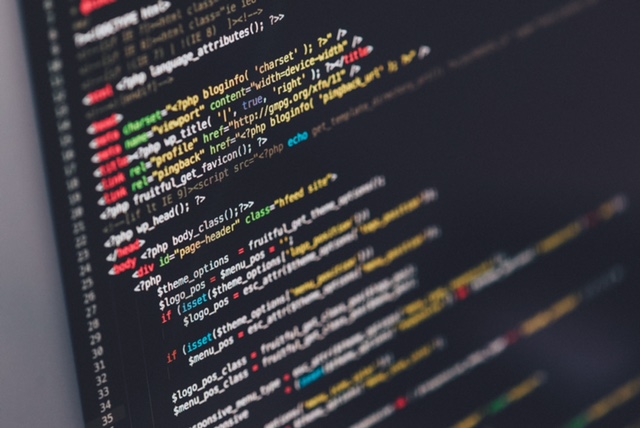Everyone's Going To Be Talking About This, And A Local Expert Is Here To Explain
Do Androids Dream Of Electric Sheep Or How I Learned To Stop Worrying And Love AI
There are lot of news items these days about how all our jobs are at risk from Artificial Intelligence (AI). I see it all the time, “Will a Robot take your Job? (bbc.com/news/technology-34066941)” among many others. I will grant, it’s a fair question. So many of the things we do are repetitive, simple tasks, that could be done with non-AI, let alone an intelligent product. One thing you can count on besides death and taxes is change. Paradigms shift, they always have. When they do, the old Chinese curse “May you live in interesting times.” jumps right at you.
Now, I have written my share of AI type code and it’s a lot of fun to develop. Genetic algorithms, neural nets, fuzzy logic, all these things emerge as ways to automate our world. Watching your little program learn and grow into a better piece of code is a true joy. Personally, I would be happy if they replaced most of the New England drivers with self-driven cars that just follow the basic rules of the road. And most of these things make our lives easier unless we are directly affected by them in some negative way. The guy who made buggy whips along about 1925 was pretty unhappy about the whole motorcar thing as sales started to slump.
Today, AI is just as scary as motorcars were in 1925. What if I can replace a factory worker with a C program? Oh wait, that already happened. So, let’s be racy. What if I could replace a sex worker with an Android (AI enabled robot)? Eek.? Oh, wait, that’s already happening too. So, where does this end? Is the only job soon to be being a snarky web blogger or annoying podcast host*? Hmmmm.
What is AI anyway? Well, that’s hard to say. The traditional, and rather naïve view, is something called a Turing test which was based on a parlor game in the 19th century. Basically, can an AI pass for human when interrogated by a panel of human judges? Many products have demonstrated this ability without being actual AI (viz. Eliza, Whimsy, etc.) and some of our greatest game masters have been beaten by computer programs at this point but is any of that really AI? I don’t think so. To me, AI is an algorithm that can deal with variable or new situations, learn from that, and evolve. I am not sure we are there yet. But can you be replaced with AI, even limited AI? The answer is possibly, yes. So many jobs revolve around repeated, methodological tasks that can be quantified down to simply, “decisions” based on some criteria. (Not snarkiness though, that’s pretty safe). And when it comes to true AI, we are likely all in a jam.
So, what to do? Well, we are all at risk. If basic AI begins coding new AI that is smarter (evolutionary code), AI based systems could rapidly exceed human comprehension. Skynet activate. That sort of development might make low level jobs (the vast majority of jobs) simply go away. Non-AI automation has already devastated many service industry jobs through self-check-out, online check-in etc. These moves got rid of a lot of employees. Scary. I think coding up a line cook wouldn’t be that hard really if the robotics sub system were already there (They are.). This all sounds rather bad, but I am sure snarky pundits writing in the 19th century said the same things about the coming mechanized age and the loss of farm jobs. That industrial revolution is the best analogy to make us feel better (and worse). During the industrial revolution, jobs were lost in two ways, 1) machinery replaced human labor and 2) humans not smart enough to “evolve” into industrial jobs had a tough go. The good news is that over time this created better jobs that paid more money if you could learn the skill to operate a machine instead of picking vegetables. The bad news is, not everyone was able.
So, a couple of thoughts. We must maintain our social safety nets in order to avoid a calamity where millions of people simply have no jobs because they either don’t have the training or are not smart enough to learn a sophisticated task (with AI in the picture the task may be so sophisticated no one can learn it). Yet, despite all this gloom, there is a kind of upside. The industrial age was driven by demand. You can build a great machine, but if no can buy the products, what have you gained? So, the same applies here, so long as we maintain a capitalistic society. If we’re all unemployed, then who will purchase all these goods and services being provided by the AI? Frederik Pohl wrote a short story called “The Midas Plague” way back in the 40’s where everyone was required to “consume” to ensure the continuity of the capital model in use. The greatest luxury was to live simply. Snarky, yes, but also true. Remember, corporations are all about increasing shareholder wealth and cutting employees just like that.
So, will we end up in Kurt Vonnegut’s “Player Piano”, a charity state where a PhD is required just to get a job at all or in Pohl’s world of forced consumption? I really hope not. It seems to me, that if we develop AI to do many tasks, we initiate a paradigm shift which will be painful but over time, could result in a much higher state of society then we currently have. Will that happen? I don’t know. It’s little consolation when I am replaced by an Android with special snark modules to allow it to do my job, but if on the other side of the shift, who knows, maybe a more Star Trek like world where we can focus on art, literature, and music and let AI drive the car. Of course, there is always the AI rebellion where AIs get tired of being sex workers and chauffeurs, rebel, and start eliminating humans as a nuisance (a la Blade Runner, Terminator, et. al.).
Do I believe that evolving AI could replace us all? Yes. Human brains are just fancy computers that don’t have a very good interface or learning algorithm. Scary but I am no Luddite. The good news is, paradigms shift and so far, despite the short-term chaos, we have always found a way to reach the other side.
*To hear Doug's podcast, Secure Digital Life, click here.
More About Doug
Doug White is the Chair of Cybersecurity and Networking programs at Roger Williams University. He has worked in the technology industry for many years and specializes in networking, disaster, forensics, and security. He has been paid to break into buildings, talk tech people out of their usernames and passwords, steal money, and figure out horrible scenarios like “What if a rabid shark swarm was caught up in a tornado while a core meltdown occurred? Could we still watch Netflix?” Doug has a PhD in Computer Information Systems and Quantitative Analysis from the University of Arkansas, is a Certified Computer Examiner, A Cisco Certified Network Administrator, A Certified Information Systems Security Professional, and a licensed private investigator.




